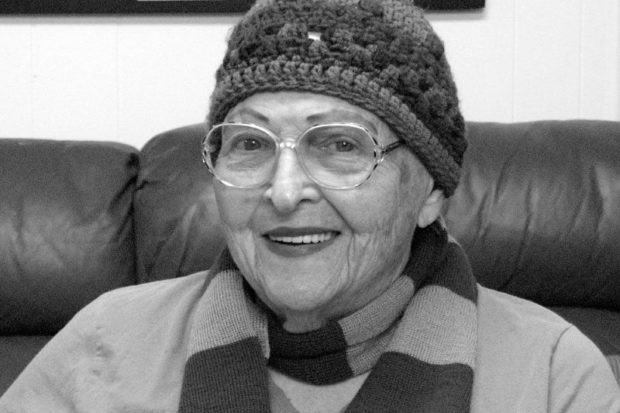

By Maria Telesco
Cardinal Roger Mahony recently joined historic figures French Army Captain Alfred Dreyfus, American Army Lieutenant William Calley, Penn State Head Coach Joe Paterno, attorney Lynne Stewart and countless others in the exclusive “Scapegoats R Us Club.”
Mahony was admonished by Los Angeles Archbishop Jose Gomez for not handling the Catholic Church’s pedophile problem properly. He allegedly didn’t report the right crimes at the right times to the right authorities. Gomez directed no rebukes toward the pedophiles themselves or to the many bishops who swept the crimes under their respective rugs; he said nothing about the Rome ivory-towerists who ordered them all to do whatever necessary to prevent the sexual abuses from becoming public knowledge. It appeared Cardinal Mahony alone was singled out to atone for the failures of some of his colleagues.
A 1970s novel, Don’t Embarrass the Bureau, promoted itself as being taken from factual events during J. Edgar Hoover’s reign over the FBI. In a nutshell, Hoover’s orders were to always deny and cover up any misdeeds or errors by FBI agents. That continues to be a standard for most institutions including the military, industry, churches and everything else. When I worked as a hospital nurse, our inside joke was Q: “Why do hospitals have nurses?” A: “To take the blame when a doctor cuts off the wrong leg of the wrong patient.” Nothing has changed.
In a report commissioned by the family of the late Joe Paterno, published a few weeks ago, the legendary Penn State football great was “unfairly tarnished and implicated” in the cover-ups of the sexual abuse crimes of assistant coach Gerry Sandusky. A staff member informed Paterno about a sexual encounter he had observed between Sandusky and a child. Paterno reported this information to two higher-ranking officials, who allegedly failed to report it in turn to the police. The university fired Paterno shortly after the abuse scandal broke, whereas Sandusky, the actual criminal, at least got to have a trial before being convicted.
Lynne Stewart is a lawyer who defended the poor and unpopular. Former U.S. Attorney General Ramsey Clark appointed her to join the defense team of Sheikh Omar Abdel Rahman, who in 1995 was convicted of seditious conspiracy, solicitation of murder and conspiracy to bomb, in connection with the 1993 World Trade Center attack. Rahman’s followers claim that he, “the Blind Sheikh,” was framed and convicted by prosecutorial misconduct. After her client’s conviction, Stewart was tried and convicted of conspiring to defraud the United States, providing support to terrorist activity and making false statements—guilty of the “crime” of defending her client. Disbarred, she is now in a Texas federal prison, where she has been denied medical care for her recurrent metastatic breast cancer.
The notorious “Dreyfus Affair” political scandal rocked France between 1894 and 1906. Army Captain Alfred Dreyfus was convicted of treason for allegedly communicating French military secrets to the Germans. He was sentenced to life in prison and spent five years in solitary confinement on the infamous Devil’s Island. Later evidence identified Major Ferdinand Walsin-Esterhazy as the actual traitor, but the military suppressed that evidence and concocted false “evidence” to frame Dreyfus. Eventually, the cover-ups were uncovered, and Dreyfus was exonerated in 1906.
Lt. William Calley was convicted of killing 22 civilians in the Vietnam My Lai massacre of 1968. At his trial, it was testified that higher-ranking officers ordered Calley’s platoon to kill everyone in the village including all men, women, children and animals, and then to pollute the water supply. Soldiers who tried to halt the massacre were denounced as “traitors.” Calley was the only officer or soldier convicted of the killings. He was originally sentenced to life in prison, later reduced to three and one-half years under house arrest.
Scapegoats appear to have in common that they are usually a small or peripheral part of whatever happened that shouldn’t have. They are not the perpetrator of the crime, and they are not the higher-up who ordered it done. They are caught in the middle between those two extremes. They are often punished for doing what they had been ordered to do, whereas refusing to obey an order could have serious repercussions. Damned if they did, damned if they didn’t.
Throughout history, in most societies, scapegoating has been a favorite pastime. A Japanese CEO said, “Japanese business is more successful than American because when something goes wrong the Japanese say, ‘Let’s find a way to fix it,’ while Americans say ‘Let’s find someone to blame it on’.” Ya think he might be right?
*****
Maria Telesco is a retired registered nurse who has volunteered in various aspects of prison ministry for more than 25 years. Contact her at maria.telesco@sbcglobal.net.
